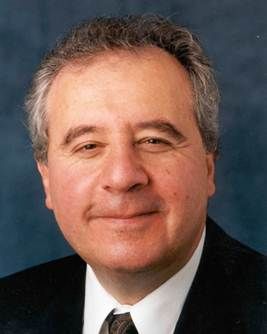Dan Frangopol, the Fazlur Rahman Khan Endowed Chair of Structural Engineering and Architecture and a professor in the department of civil and environmental engineering (CEE), began 2013 by guest-lecturing on three continents in as many months.
The papers associated with all three lectures were co-authored with Mohamed Soliman, a Ph.D. candidate in CEE’s structural engineering program and a P.C. Rossin Doctoral Fellow in the College of Engineering. The Rossin Doctoral Fellowships are awarded to an elite group of Ph.D. students interested in pursuing an academic career.
Most recently, Frangopol spent March 11 and 12 in Germany at the 23rd Dresden Bridge Symposium, having been selected by the event organizers to present the only English-language plenary lecture there. A German national event, the symposium is organized by Dresden University of Technology’s Institute of Concrete Structures and has attracted as many as 1,350 participants. Frangopol gave a lecture entitled "Life-cycle management of bridges under uncertainty."
In February, Frangopol traveled to Arlington, Virginia for the annual meeting of the American Society of Naval Engineers. Frangopol presented his lecture, “Ship Structural Life-cycle Management” at the two-day technical symposium, featured under the Ship Structures track during “ASNE Day 2013: Engineering America's Maritime Dominance.”
Frangopol was invited to Taipei, Taiwan in early January to attend the The Pacific-Rim Workshop on Innovations in Civil Infrastructure Engineering. As a keynote speaker, Frangopol spoke on the topic of “Integration of reliability, optimization and structural health monitoring in life-cycle management of structures: Emphasis on highway bridges.”
With more than 40 years in the field, Frangopol's contributions, according to the American Society of Civil Engineers (ASCE) “have defined much of the practice around design specifications, management methods, and optimization approaches.” Moreover, his work “has not only saved time and money, but very likely also saved lives.”
Among his most important contributions, however, is a different type of infrastructure — intellectual networks that link the brightest structural engineering minds from all over the world and help guide the development of more sustainable, resilient structural systems.
Frangopol has played a leading role in building an interconnected set of professional networks that drive collaboration around some of his field’s most vexing issues. These networks, formalized through international associations that regularly meet and publish cutting-edge research, support the sharing of crucial information across the global structural research community.
Click here to learn more about how Professor Frangopol is connecting researchers around the world to study life-cycle engineering of structural systems.

